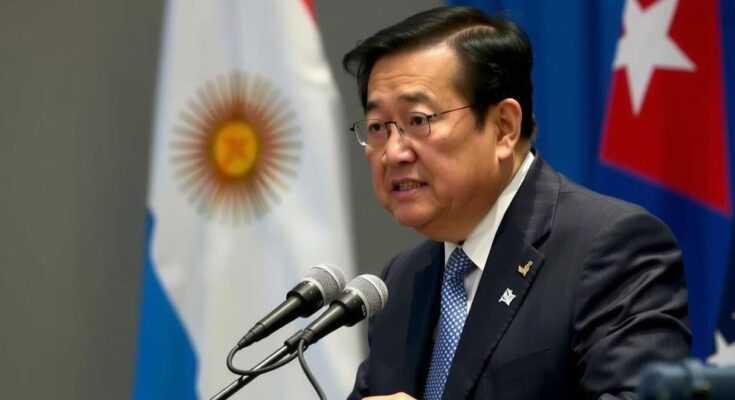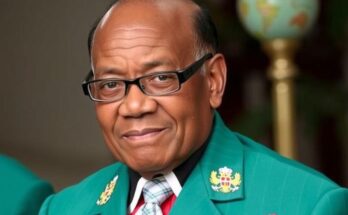Argentine President Javier Milei terminated Foreign Affairs Minister Diana Mondino after she voted to lift the U.S. embargo against Cuba at the U.N., reflecting his pro-American stance. The U.N. assembly’s call to end sanctions was overwhelmingly supported, except by the U.S. and Israel. Gerardo Werthein has been appointed as the new foreign minister, furthering Milei’s policy of distancing Argentina from leftist alliances.
In a significant political shake-up, Argentine President Javier Milei dismissed Foreign Affairs Minister Diana Mondino following her vote in favor of lifting the U.S. embargo against Cuba during a recent United Nations assembly. This move reflects Milei’s administration’s dedication to maintaining a pro-United States stance while distancing itself from left-leaning allies such as Cuba and Venezuela. The U.N. General Assembly’s overwhelming support for ending the sanctions on Cuba was only challenged by the U.S. and Israel, highlighting a divergence in foreign policy perspectives. Milei, who has been vocal about aligning Argentina’s foreign policy closely with that of the U.S. and Israel, expressed his approval of a lawmaker’s praise for his government, which opposes support for nations labeled as dictatorships. Following Mondino’s vote, Milei appointed Gerardo Werthein, the former Argentine ambassador to the U.S., as her successor. This political realignment comes in the backdrop of Argentina’s state energy company YPF halting fuel supplies to the Cuban airline Cubana, a decision that led to the suspension of a forty-year route between Havana and Buenos Aires. The Argentine officials stated that their actions were influenced by the existing U.S. embargo, further complicating the diplomatic relations between Argentina and Cuba.
The recent dismissal of Foreign Affairs Minister Diana Mondino by President Javier Milei underscores a critical pivot in Argentina’s foreign relations strategy. Milei, a libertarian leader with a vision aligned closely with American ideals, has made it clear that his administration will take a tougher stance against regimes that he deems authoritarian, including Cuba and Venezuela. Mondino’s support for lifting the embargo against Cuba was perceived as a direct contradiction to Milei’s foreign policy objectives, highlighting internal discord within the government. This incident coincides with broader geopolitical discussions at the U.N., where the topic of U.S. sanctions against Cuba has been a longstanding point of contention.
In conclusion, the dismissal of Foreign Affairs Minister Diana Mondino following her vote at the U.N. to lift the embargo against Cuba marks a clear delineation in President Milei’s foreign policy goals. His administration’s commitment to aligning closely with U.S. foreign interests and distancing Argentina from leftist regimes is evident in this decisive action. The appointment of Gerardo Werthein as her replacement is indicative of Milei’s intent to steer Argentina firmly in line with American diplomatic efforts, despite the significant opposition presented at international forums.
Original Source: www.hindustantimes.com




